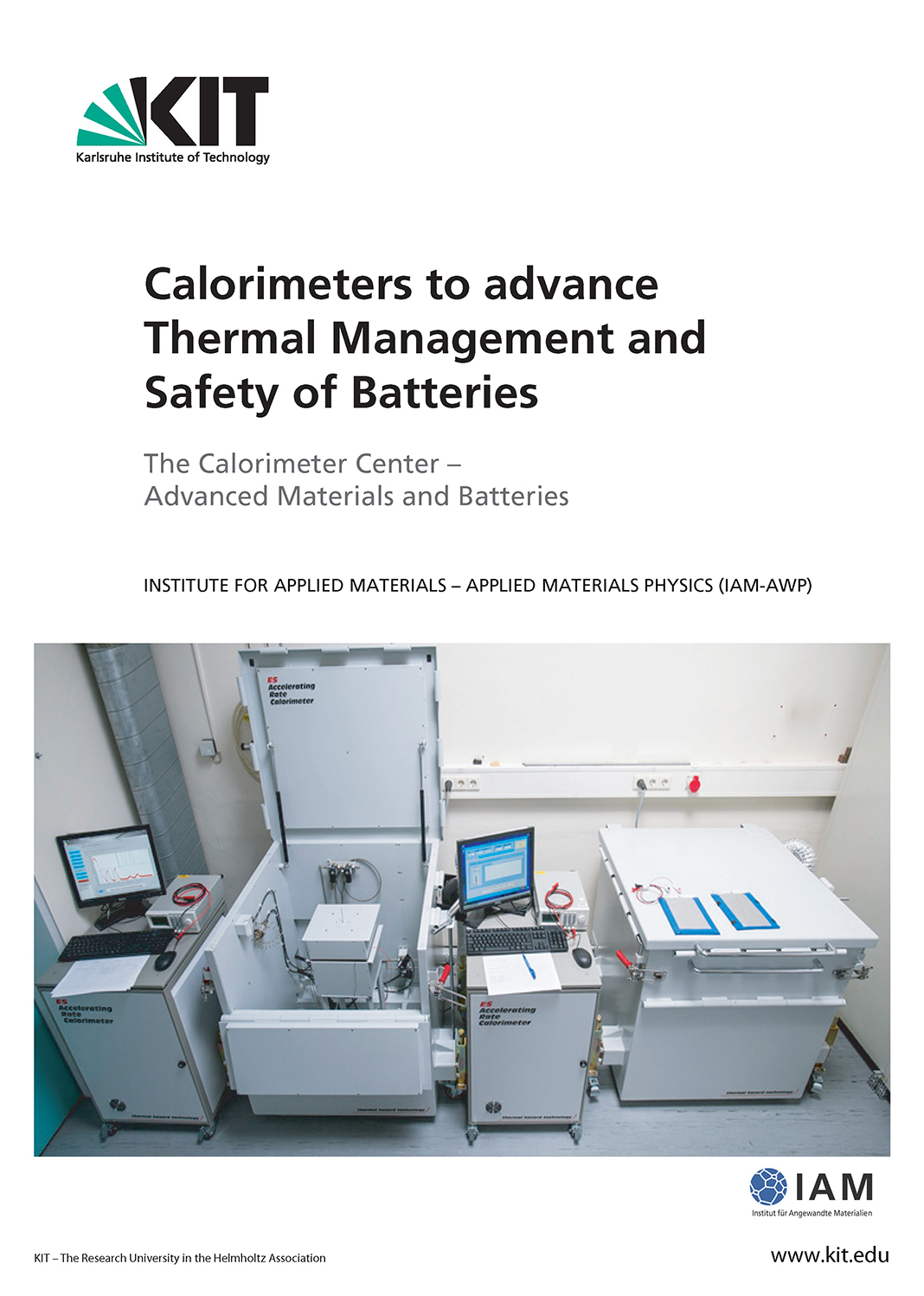The Karlsruhe Institute of Technology’s (KIT) Institute for Applied Materials (IAM) is one of KIT’s largest and most prestigious facilities.
The IAM, a global leader in materials science and technology education and research, contributes to the fields of energy, microtechnology and mobility systems. IAM’s interdisciplinary materials research covers materials development and synthesis, process technology; and systems integration. Since 2008 the institute has overseen a range of internationally recognised research and development projects pertaining to lithium ion batteries, with particular focus on thermal and thermodynamic characterisation and modelling.
The Institute of Applied Materials is home to the largest battery calorimetry laboratory in Europe: the Calorimeter Centre, first established in 2011, houses six Accelerating Rate Calorimeters of varying sizes; in order to collate and analyse data to gauge the thermic safety of lithium ion batteries. By obtaining extensive data on a battery’s thermodynamic behaviour, including determining the battery’s reaction to mechanical, operational and thermal stress, adaptations can be made to both the battery and the thermodynamic systems in which it operates.
Dr Carlos Ziebert, head of the Calorimeter Centre, has made his mission statement the assurance of lithium-ion cell battery safety. The development of safe lithium-ion cells is crucial to the future of electric mobility and stationary energy storage – “thermal runaway”, a spontaneous drastic increase in system temperature which is currently a prevailing risk, can cause the battery to combust or explode. Ziebert aims to optimise system design using thermodynamic data to prevent thermal runaway and guarantee safe, streamlined battery systems.
This eBook also includes:
- An overview of the importance of safe lithium-ion battery systems and the benefits of thermodynamic battery calorimetry;
- A closer look at the work of the IAM’s Calorimeter Centre and the data it evaluates;
- The tests conducted in the Calorimeter Centre, their significance and how they work; and
- The future of battery calorimetry testing.


